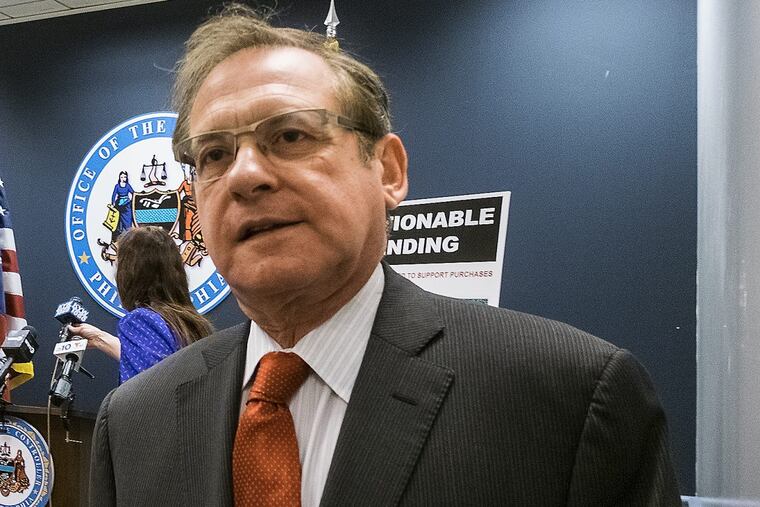Fiscal watchdog required for all tax dollars
Philadelphia's city controller argues that it is important to keep an eye on public funds at all stages of the process.

With a reported $11 million of tax dollars spent in the first six months for Philadelphia's new pre-K program and almost double that amount scheduled for this year, the chickens have already hatched.
The recent Daily News editorial indicates there should be no oversight of the program because there haven't been enough tax dollars spent to warrant a watchdog's review.
Unfortunately, this type of logic is allowing the rooster to roam the hen house with no one ever checking in.
It would be fiscally irresponsible not to account and monitor these funds at present before millions more are disbursed in the future. These are tax dollars collected into the City's General Fund, and the public deserves to know how their money is being spent. Turning a blind eye just because it is a new program is not a sound practice, and certainly not a policy that the City Controller's Office follows.
It has been reported that almost 2,000 new pre-K seats will be filled at a cost of about $20 million annually for the current year. The mayor's office indicated that it expects to fill 6,500 new pre-K seats over the next five years. Based on the current costs, it is estimated that $65 million would be required to fund the program annually.
That is a lot of dough to go unaccounted, which is why I called for an audit now.
The objective of the audit is to ensure that pre-K providers, educators, parents and children are getting the complete benefit of the beverage tax revenues that are being allocated for the program. An audit can answer several questions, including:
How much of the total funds is paying for administrative fees? The city does not pay pre-K providers directly, but rather it contracted with a large public health institute to oversee the program, along with a few community non-profit organizations.
Are pre-K providers and educators receiving sufficient funding? There are real consequences when programs do not receive adequate funding, as has been reported by the several unfortunate accounts of School District of Philadelphia teachers having to pay for their own classroom supplies.
How much does it cost per pre-K seat and what programs will be cut or revenues will be raised to make up for any shortfalls? This will help determine feasibility and sustainability, especially since monthly revenue collections so far have yet to meet the city's budget projections.
These are questions that need to be answered now — not after hundreds of millions of tax dollars have been spent.
In addition, it was recently reported by a local television station that several of the pre-K providers receiving beverage tax funds were not in compliance with state licensing requirements, criminal background checks and owed tens of thousands of dollars in back taxes.
These are significant red flags and warrant an audit to determine the extent of the problem.
Philadelphia's taxpayers and businesses deserve a fiscally responsible government.
More important, it necessitates a watchdog to monitor tax dollars — even at the earliest stages.
Alan Butkovitz is the Philadelphia city controller. Send email to Alan.butkovitz@phila.gov